I wrote a class which handles a chain of request one by one.
I created a class RequestChain wich takes Alamofire.Request as parameter
class RequestChain {
typealias CompletionHandler = (success:Bool, errorResult:ErrorResult?) -> Void
struct ErrorResult {
let request:Request?
let error:ErrorType?
}
private var requests:[Request] = []
init(requests:[Request]) {
self.requests = requests
}
func start(completionHandler:CompletionHandler) {
if let request = requests.first {
request.response(completionHandler: { (_, _, _, error) in
if error != nil {
completionHandler(success: false, errorResult: ErrorResult(request: request, error: error))
return
}
self.requests.removeFirst()
self.start(completionHandler)
})
request.resume()
}else {
completionHandler(success: true, errorResult: nil)
return
}
}
}
And I use it like this
let r1 = Alamofire.request(Router.Countries).responseArray(keyPath: "endpoints") { (response: Response<[CountryModel],NSError>) in
print("1")
}
let r2 = Alamofire.request(Router.Countries).responseArray(keyPath: "endpoints") { (response: Response<[CountryModel],NSError>) in
print("2")
}
let r3 = Alamofire.request(Router.Countries).responseArray(keyPath: "endpoints") { (response: Response<[CountryModel],NSError>) in
print("3")
}
let chain = RequestChain(requests: [r1,r2,r3])
chain.start { (success, errorResult) in
if success {
print("all have been success")
}else {
print("failed with error \(errorResult?.error) for request \(errorResult?.request)")
}
}
Importent is that you are telling the Manager to not execute the request immediately
let manager = Manager.sharedInstance
manager.startRequestsImmediately = false
Hope it will help someone else
Swift 3.0 Update
class RequestChain {
typealias CompletionHandler = (_ success:Bool, _ errorResult:ErrorResult?) -> Void
struct ErrorResult {
let request:DataRequest?
let error:Error?
}
fileprivate var requests:[DataRequest] = []
init(requests:[DataRequest]) {
self.requests = requests
}
func start(_ completionHandler:@escaping CompletionHandler) {
if let request = requests.first {
request.response(completionHandler: { (response:DefaultDataResponse) in
if let error = response.error {
completionHandler(false, ErrorResult(request: request, error: error))
return
}
self.requests.removeFirst()
self.start(completionHandler)
})
request.resume()
}else {
completionHandler(true, nil)
return
}
}
}
Usage Example Swift 3
/// set Alamofire default manager to start request immediatly to false
SessionManager.default.startRequestsImmediately = false
let firstRequest = Alamofire.request("https://httpbin.org/get")
let secondRequest = Alamofire.request("https://httpbin.org/get")
let chain = RequestChain(requests: [firstRequest, secondRequest])
chain.start { (done, error) in
}
